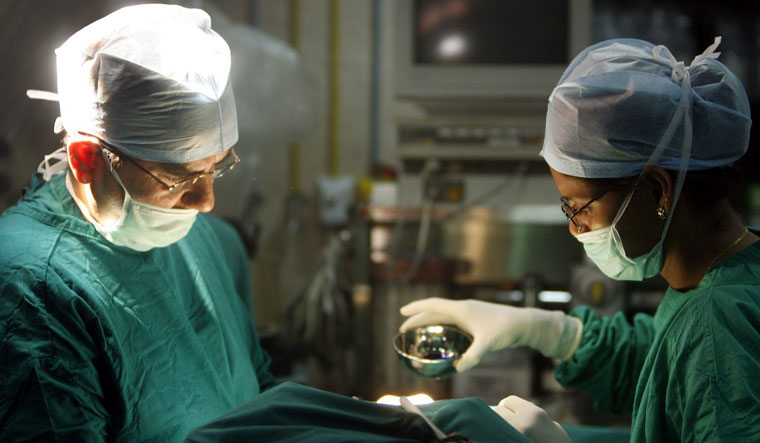Doctors across the country are coming together to counter the malaise of "corporatisation" and "commercialisation" of healthcare, a trend that has resulted in an increase in medical malpractices, higher out of pocket expenses for healthcare, and a breakdown of trust in the doctor-patient relationship.
As the "unregulated", "market-based" healthcare system is strengthened and public health systems are weakened, the patient is at the receiving end, along with several doctors in private hospitals who believe in providing "ethical" care.
At the maiden conference of the Alliance for Doctors for Ethical Healthcare (ADEH), doctors pushed for a "rational, ethical" approach in healthcare, and a move towards the "Indian system of universal healthcare". The ADEH was formed in 2016 by a few doctors who wanted to raise their voice against the "unregulated, non-standardised" nature of private healthcare in India.
Today, the group claims a membership of 300 doctors from across the country. "Aside of advocacy efforts, we are working on a document that will define a rational, ethical approach that doctors must follow when they are treating patients. Too many unnecessary procedures in private sector have become the norm," said Dr Abhay Shukla, Maharashtra-based public health physician.
Kolkata-based gynaecologist, Dr Sanjib Mukhopadhyay said that a rational approach would imply, for instance, that doctors would desist from following the trend of rising Caesarean sections. "Advising Caesarean sections if the umbilical cord is found to be wrapped around the baby's neck has become a common practice. But a c-section is not required in this case. Another common practice is prescribing the hormone progesterone to pregnant women. Doctors tend to treat pregnancy as a disease and not a natural process," he said.
Dr Vinod Paul, member, NITI Aayog, said that the trust deficit in private healthcare was at an all-time low, and that unethical doctors in the profession "must not be protected". Referring to the government's move towards universal healthcare, Paul said that the Centre's Ayushman Bharat scheme would be a "gamechanger" in healthcare.
The scheme would be divided into two parts – an insurance cover of five lakhs for 10 crore families, and setting up 1.5 lakh health and wellness centres across the country. The former would take care of secondary and tertiary healthcare, while the latter would result in an expansion of services that are currently being provided under primary healthcare.
Responding to concerns among several ADEH doctors over private insurance providers benefitting from the government's scheme, Paul said it would be wrong to "assume that insurance companies would be running away with the money".
"I invite you [doctors] to step forward and help us decide the rates for several procedures so that there is no scope for overpricing of the procedures," he told the audience.
To decide the rates for several procedures, the Centre has been looking at other schemes such as Rashtriya Swasthya Bima Yojana and Central Government Health Scheme, Paul said, adding that ADEH needed to provide their inputs too.
Speaking about the move towards an "Indian system of universal health care", Dr Samirun Nundy, senior consultant, Sir Ganga Ram Hospital, said that the tendency to follow Western models in providing treatment should be curbed, and doctors should decide on the basis of "where a patient comes from, what he can afford" instead.


